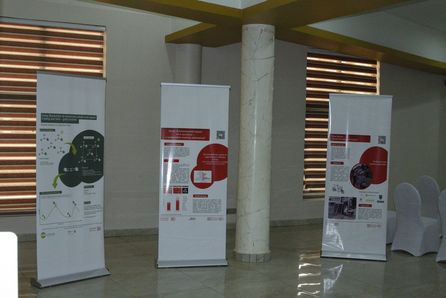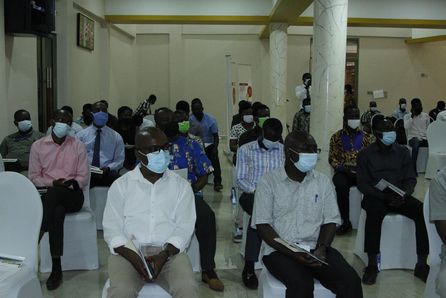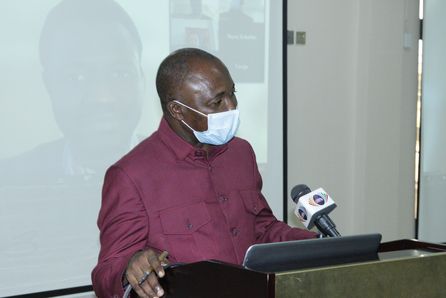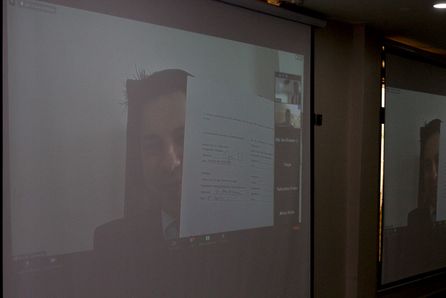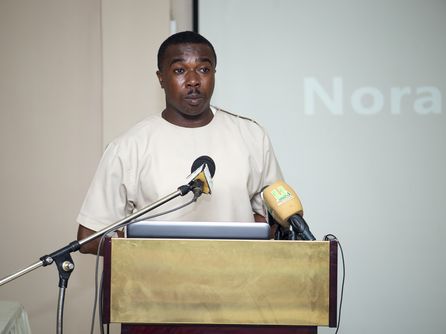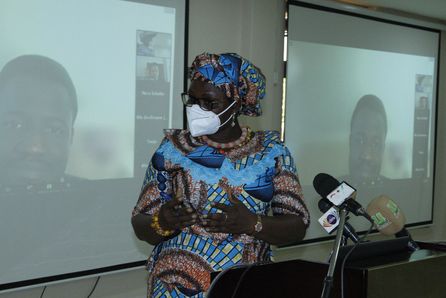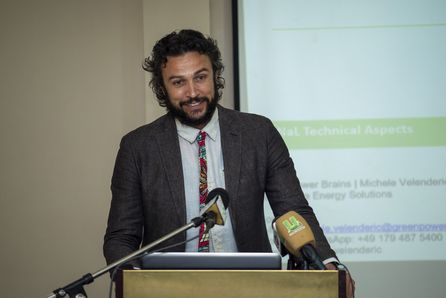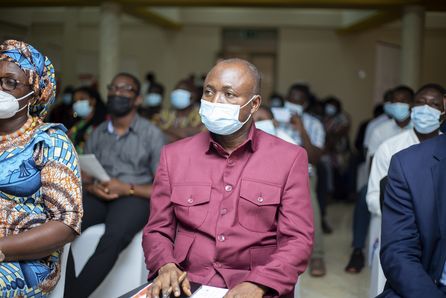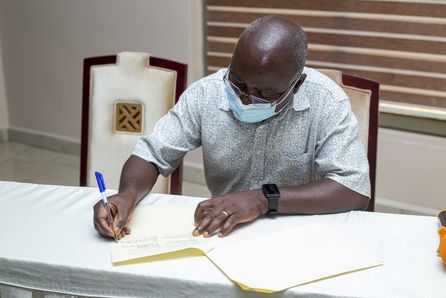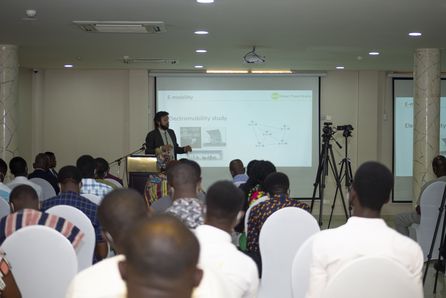Workshops in Ghana
Joint research on electromobility with partner universities in Ghana
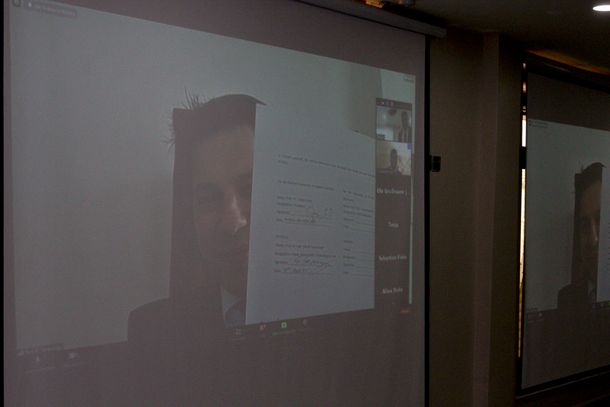
As a result of population and economic growth in many regions of sub-Saharan Africa, the volume of traffic and the associated environmental impact is also continuing to increase. Light electric vehicles are a potentially sustainable mobility solution. The Laboratory for Sustainable Technologies has been working on solutions for low-emission transport concepts in the form of light electric vehicles (LEVs) since 2018 and is now launching a cooperation project with two partners in Ghana.
As part of the kick-off event for the research project "Mobility for Sub-Saharan Africa - thinking sustainably across the life cycle" (MoNaL for short) in Sunyani, Ghana, the President of Bochum University of Applied Sciences, Prof. Dr Jürgen Bock, signed a Memorandum of Understanding (MoU) on 19 April 2021. This marks the start of cooperation between Bochum University of Applied Sciences and the University of Energy and Natural Resources (UENR). The aim of the "MoNaL" project, which is funded by the Federal Ministry for the Environment, Nature Conservation and Nuclear Safety (BMU), is to research sustainable mobility offers for the countries of sub-Saharan Africa as part of the "Environmental Technologies Export Initiative". The impact of the offer is considered, improved and reviewed holistically over the entire life cycle - from the production and design of the vehicles, through the energy supply, to the recycling of the vehicles and the energy supply infrastructure. As part of a pilot implementation in Ghana, a rental system for e-mopeds and cargo bikes is being trialled and adapted in line with local conditions and user requirements. As sustainable mobility must be considered in the context of renewable energy supply, the project is also developing a smart mini-grid consisting of self-sufficient solar systems and charging stations.
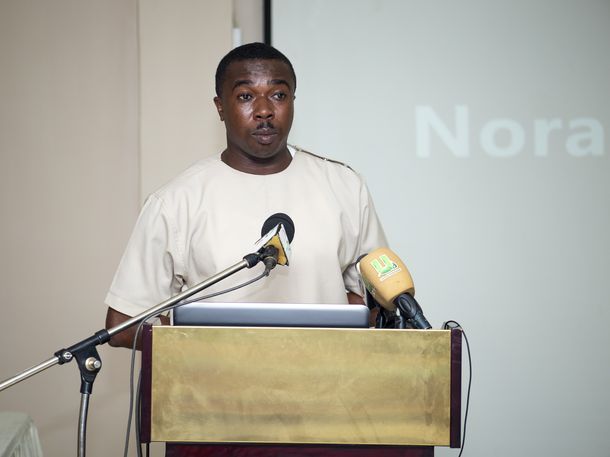
Semih Severengiz, Head of the Laboratory for Sustainability in Engineering, together with the President (local name: Vice Chancellor) of the university, Prof. Elvis Asare-Bediako, opened the kick-off event, which was held in a hybrid format in Ghana and broadcast to Germany. Research with the partner university, the University of Energy and Natural Resources (UENR) in Sunyani, is particularly important in order to better understand the local conditions, emphasises Prof. Semih Severengiz. The collaboration enables local requirements and conditions to be identified, sustainable transport concepts to be developed accordingly and customised results to be achieved. The President of the UENR also emphasised the relevance of access to affordable and reliable energy supply and the reduction of environmental pollution through renewable energies. The Minister of the Bono Region, Madam Justina Owusu Banahene, and the Director of the Regional Center for Energy and Environmental Sustainability (RCEES), Dr Eric Ofosu Antwi, emphasised the particular importance of the research work presented at the workshop as an important contribution to sustainable development in Ghana. Dr Sebastian Finke, research associate at the Laboratory for Sustainability in Technology, then presented the results of the life cycle analysis of a solar mini-grid. He compared the environmental impact of supplying cargo bikes with energy from the national electricity mix with the use of a mini-grid. The advantages of solar energy were also emphasised by research assistant Frederick Adjei. Another partner of the laboratory, Michele Velenderic from Green Power Brains, presented the potential of decentralised energy supply systems to ensure a secure power supply.
The energy and mobility concepts developed as part of the research project should be scalable to different use cases. For this reason, a pilot implementation of a rental system for e-mopeds and cargo bikes is being carried out at the site of the partner Don Bosco Solar and Renewable Energy Centre in Tema, Ghana. In this context, a second workshop was held at the Don Bosco Solar and Renewable Energy Centre on 22 April 2021. The event served to network with local stakeholders. The focus was on the planned joint training and vocational education work. Father Christoff Baum, the director of the centre, presented the work of Don Bosco and assured the audience of the centre's willingness to pilot the use of light electric vehicles on campus. A Memorandum of Understanding between Bochum University of Applied Sciences and Don Bosco Tech was also signed during the event.
In the further course of the project, the implementation, piloting and scaling of the concepts for sustainable electromobility offers with a renewable energy supply are planned, as well as the accompanying evaluation in the context of surveys and profitability and life cycle analyses in preparation. In addition, the development of guidelines and qualification programmes in the field of recycling and electromobility is planned, which will serve to transfer knowledge and establish the developed solutions in the long term.
Follow the MoNaL project on LinkedIn!
FUNDED BY
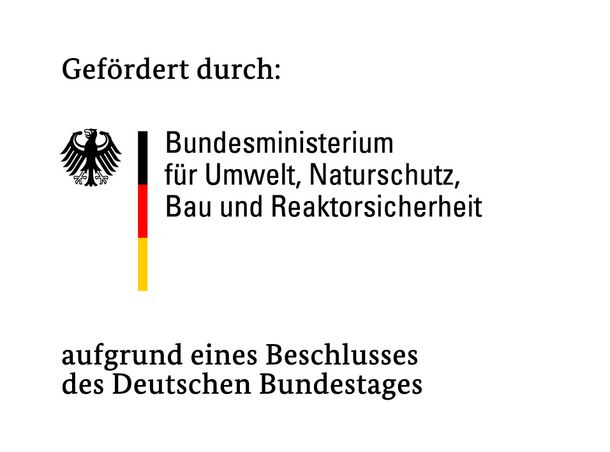
Funding program:
Export Initiative Environmental Technologies
Project Number:
FKZ 16EXI4011A
Funding Ministry:
Federal Ministry for the Environment, Nature Conservation and Nuclear Safety (BMU)
Project Sponsor:
VDI/VDE-IT Berlin
Funding Amount:
EUR 397,382.00


